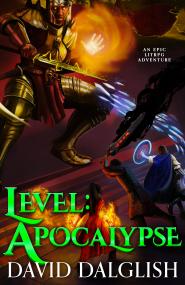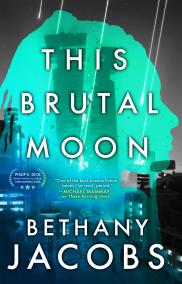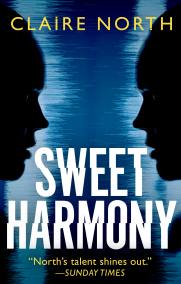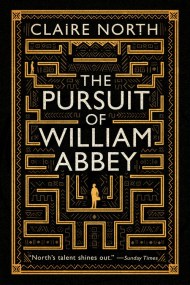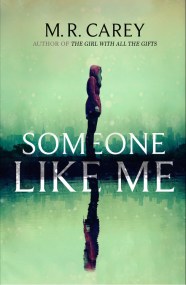By clicking “Accept,” you agree to the use of cookies and similar technologies on your device as set forth in our Cookie Policy and our Privacy Policy. Please note that certain cookies are essential for this website to function properly and do not require user consent to be deployed.
25 Alive
A Women's Murder Club Thriller
Contributors
By Maxine Paetro
Formats and Prices
- On Sale
- Apr 28, 2025
- Page Count
- 336 pages
- Publisher
- Little, Brown and Company
- ISBN-13
- 9780316569774
Price
$30.00Price
$39.00 CADFormat
Format:
Buy from Other Retailers:
Sergeant Lindsay Boxer, medical examiner Claire Washburn, Assistant District Attorney Yuki Castellano, and crime reporter Cindy Thomas investigate the shocking murder of a former SFPD chief in San Francisco’s Golden Gate Park, in this thriller from the world’s #1 bestselling author.
“Those who haven’t read any of the novels in the Women’s Murder Club series are cheating themselves.” —BookReporter
SFPD homicide detective Lindsay Boxer knows her way around a crime scene.
But nothing can prepare her for the shock of recognition: the victim is Warren Jacobi, Lindsay’s onetime partner who rose to chief of police.
A top investigator until the end, Jacobi managed to leave Lindsay a clue.
Following a trail of evidence along the west coast, the Women’s Murder Club pledges to avenge Jacobi’s death before the killer can take another one of their own.
Series:
What's Inside
Prologue
Chapter 3
Chapter 4
Chapter 5
Chapter 6
Chapter 7
Chapter 8
Chapter 9
•••
PROLOGUE
One
JUST AFTER SIX that morning, Warren Jacobi, a sixty‑year‑old retired homicide lieutenant and former chief of police, parked his Ford F‑150 within walking distance of one of the eastern entrances to Golden Gate Park.
Jacobi was edgy in the best possible way, amped up, excited, feelings he hadn’t had in years. Today was the day. After weeks of planning and tracking, within the next hour, he would bring down a killer.
He was a big man, 240 pounds, but he’d stayed in shape. This morning, he wore his bird‑watching gear, camouflage pants, and a matching sweater under his tac vest. Binoculars hung from a strap around his neck, and his weapon was wedged against the small of his back by the waistband of his pants.
Jacobi entered the park, keeping to the tree shadows, looking for a merciless killer who delighted in outfoxing the police. Jacobi had to do this alone, and he could — but he was still haunted by the bureaucratic bull crap that had forced him into early retirement. He hadn’t been able to shake the humiliation. Bottom line, he would not, could not, close out his life’s work by leaving this psychotic predator at large.
Jacobi quickly slipped into a narrow pocket of rampant vegetation, a cleft in the living walls of dense vines and saplings. Inside this natural bivouac, he was virtually invisible but had partial views of the path looping around the Lily Pond below and back up to the street.
Years ago, he’d been walking the park when he saw a man acting suspiciously near the Lily Pond. When a teenage girl’s dead body was pulled from the pond later that day, Jacobi knew what he’d witnessed — and what he’d failed to do earlier. He’d been too far away, and it had happened too quickly, for him to even make an ID.
Parting branches and peering around a clump of trees now, Jacobi saw a great blue heron swoop down between the treetops and veer toward the pond. Through the zoom lens in his phone, Jacobi followed the large heron’s flight path, then took pictures of the bird with its dark crown and long gray plumes on its breast. Below the heron, at the edge of the pond, Jacobi spotted his subject wearing a dark windbreaker, jeans, and a dark‑colored baseball cap. The killer took a gun from his pocket and threw a shot at the bird. The bird veered away at the sound, and the shooter tossed the gun into the water. There was a splash, and then he turned on the path and slowly began to retrace his steps uphill.
Jacobi waited impatiently. He didn’t have the authority to per‑ form an arrest, but the former detective had zip ties in his vest pocket. Jacobi planned to surprise the guy as he walked past his hidey‑hole and bodycheck him to the ground. Then, once he’d immobilized the SOB, he’d call Chief of Police Charles Clapper to let him know that he had a wanted killer secured and ready for roasting.
Two
WARREN JACOBI PATTED his vest’s breast pocket and pulled out a tangle of zip ties, accidentally snagging the rest of the pocket’s contents at the same time. Never mind. He shut off his phone’s flash and took a few shots of the killer climbing the path. Then Jacobi paused to review the photos he’d just taken.
As he’d expected, the light from the faint sunrise behind him had been just bright enough to define plumage on a big freaking bird, but not so bright as to positively ID the killer. Jacobi slipped the phone into his vest’s side pocket — and that’s when he felt the crushing grip of a hand between his neck and right shoulder. A voice in his ear said, “You think I haven’t seen you tailing me? Don’t turn around.”
He almost recognized that voice. Who?
“Okay, okay. You got me.” Jacobi didn’t dare resist capture with his back turned. He was tensing his muscles, reaching his right hand around toward the gun in his waistband. But before he touched the grip, he felt a searing pain in his lower right side.
Again and again while he was on his knees, then again and again, dropping him face down on the ground.
Jacobi turned his head to see his attacker, then cried out, “No!”
He closed his eyes as what felt like a saw ripped through the right side of his neck. His scream was cut short. As he wheezed out his last breath, Warren Jacobi was no longer in the present.
A soft breeze blew across his face, illuminated images strung together in a bright, lightning‑like flash. Jacobi saw himself gathering his family into his arms. Putting a hand on his beloved Miranda’s cheek and kissing her. Entering a crime scene in a deep black night with Lindsay Boxer, his ride‑or‑die former partner. A brilliant sunset lighting up the bay, followed by drinks after work with old friends, his comrades in arms.
He didn’t want to die, not like this. He’d called the chief and told him who had cut him down — hadn’t he?
But then it didn’t matter. He was gone.
•••
Chapter 3
I PHONED MY boss, Jackson Brady, from the car to let him know that Claire had called me to a murder scene at Golden Gate Park. “She wants me to see the body in situ in the park, ASAP.”
Brady said, “Check in with me when you get there. I don’t know squat about this homicide.”
I copied that and strapped in. I took a quick detour on my way to the park, stopping at the car pool in front of the Hall of Justice just long enough to exchange my blue Explorer for a squad car. I translated Claire’s urgency as Code 3, meaning all lights, sirens, and maximum speed.
The street that accessed the park’s Lily Pond was blocked by three squad cars, and both the Forensics unit and the coroner’s van. I pulled up to the curb, disembarked, and followed a spur of pavement to a parking area that was cordoned off with yellow barrier tape — a warning to joggers and curiosity seekers to stay the hell out.
I badged a uniform named Maggie Cannon. She held up the tape and gave me a warning look, like I was headed toward a five‑ car pileup. I didn’t question her, just ducked under the tape and kept going. I found Claire standing with four uniformed officers inside a smaller taped‑off perimeter within the larger one. Even from a dozen paces, I could see that the victim was lying face down in a pool of blood.
“Who’s in charge?” I asked.
“I just spoke to Brady,” said Claire. “You’re it.”
I knew two of the uniforms protecting the scene: sergeants Nardone and Einhorn. I texted Brady to give him an update and gloved up.
Einhorn handed me a pair of booties, and Nardone said, “Lean on me,” which I did as I slipped the booties over my shoes.
I entered the smaller perimeter and looked at Claire. She shook her head and said of the victim, “I just can’t believe this. It’s . . . it’s so bad . . .” Her voice cracked.
I didn’t understand what she’d said. “Are you okay, Claire?”
She didn’t answer me, just looked down at the dead man, whose face was turned away from me. I could see that he had bled profusely from wounds in his lower back, and from a ragged tear halfway around his neck and face. The only other things I could really determine from where I stood was that he was a gray‑haired white man dressed in camouflage pants, a matching sweater, a tactical vest, and rubber‑soled shoes. A CSI flag was next to a pair of binoculars lying just outside the tape, half hidden in the shrubbery. Was this guy a bird-watcher?
Claire’s primary investigator, Sage Dugan, had stooped beside the body and was taking photos. Since Claire seemed unresponsive, I asked Dugan, “Did he have a camera?”
“If he had one, it’s gone,” she said. “Just a cell phone. And the binoculars are not the photographic kind.”
“Any sign of the murder weapon?”
The CSI held out a plastic evidence bag with a knife inside. It was a KA‑BAR and it was made for killing. The blade was sturdy, good for jabbing and slashing. The handle was equal in length to the blade, rounded for a firm grip and designed for bludgeoning.
I remembered that there’d been some holdups in this neighborhood. A masked robber, or a pair of them, had stolen expensive camera gear — thousand‑dollar cameras with German lenses — but nothing more violent had been reported than shouts of “Don’t make me hurt you! Hand over the camera!”
“We’ve got his wallet?” I asked.
Claire spoke up. “No wallet. Had some loose cash and credit cards, and an ID in his vest pocket. He’s carrying, too, but the gun is still in his waistband.” She paused, then said, “Linds. This is going to hurt.”
I don’t know the victim — do I? Something was trying to break through the smoke screen obscuring much of my working memory.
Claire called my name, and I turned to her. “What is it, Claire? Who is the victim?”
She sputtered, then said, “It’s Warren Jacobi. He was . . . killed.”
•••
Chapter 4
I STARED AT the dead man, but I didn’t believe what Claire had told me. I said, “This can’t be Jacobi. He . . . He . . . He’s retired.”
“I’m so, so sorry, Linds,” said Claire.
She put her arms around me. Her sobs released mine, and Claire and I both cried into the other’s shoulder until, somehow, I finally accepted the unimaginable.
When we let go, Claire asked, “Can you handle this?”
“No. But I have to.”
Another tidal wave of disbelief and grief washed over me. I loved Jacobi. He’d been my first partner in the Homicide squad. Everything I hadn’t learned in the Academy, he’d taught me by example at crime scenes or explained to me inside a patrol car. We’d bonded early, and our deep friendship had continued before and after he cut loose from his job, his career, his reason for being.
And now Warren Jacobi was dead, lying curled up at my feet. I leaned down and put my hand on his shoulder.
“I’m so sorry this happened to you, my dear friend,” I said, looking into my former partner’s face. “You have good friends working to find out who did this to you. And that person who did this will damn well pay. I hope that you know I’m here.”
I smoothed his hair and kept my hand on his forehead. I couldn’t be sure if it was true or my imagination, but I thought he still felt warm. Everyone around me was quiet. I took another moment to pray, and when I said, “Amen,” the little group echoed that solemn word.
Then I inspected Jacobi’s injuries, snapping photos with my phone. My vision was blurred by tears, but from what I could see of the degree and angles of his wounds, Jacobi hadn’t seen the attack coming. He hadn’t even pulled his piece. From what Claire had told me so far, this assault didn’t sound like a robbery.
But then why? What had been the killer’s motive? Had it been a personal beef? Someone who’d hated Jacobi? Or was my old friend a victim of circumstance?
I turned and asked Claire, “What do we know?”
•••
Chapter 5
CLAIRE CLEARED HER throat, then ran the facts. “Time of death, approximately two, two and a half hours ago, so, say 6 something a.m. The killer surprised him from behind and knew how to use a blade.”
Einhorn said, “Plus a matchbook we found in the ferns over there.”
“Let me see.”
CSI Dugan opened her kit and held up a small, clear plastic evidence bag containing a matchbook with julio’s printed on the cover. I recognized the design. It matched the look of the sign belonging to a dark hole of a bar on Valencia Street at the edge of the Mission District. I’d driven past it but never been inside.
“Don’t know if it belonged to the victim or it’s been there for days. But either way, it’s interesting,” Dugan said. “Look at the writing inside.”
I managed to open the matchbook without removing it from the evidence bag and saw that someone had used a ballpoint pen to inscribe a message in block lettering on the inside cover. I could just make out the words: I SAID. YOU DEAD.
What? What the hell does that mean?
I handed the bagged matchbook back to Dugan and addressed the people around me. “‘I said. You dead.’ We’re assuming this was left here by the killer. Is the killer bragging? Fulfilling a prophecy? Has anyone heard this statement before?”
There were no ideas at that moment, but we were just getting started.
I edged out of the scene to let the CSIs and the Forensics unit do their work as ME’s team raised the tape, hefted Jacobi’s body onto a gurney, and rolled it toward the van.
I walked like a zombie to my squad car. I turned it on, released the brake, backed up, then headed east on Nancy Pelosi Drive and toward the Hall of Justice.
At a stoplight, my mind was flooded with fresh images of Jaco‑ bi’s lifeless, bloodied body, the horrible sight of his head half sawn off by a strong hand with a killing knife. Tears spilled and I didn’t try to stop them. Warren Jacobi had been a great cop as well as my mentor, partner, and friend to the end.
That made his murder personal.
•••
Chapter 6
WHEN I REACHED the Hall of Justice, I took the stairs three flights up from the lobby to the Homicide squad room. I yanked open the wood‑framed glass outer door, bumped the hinged gate with my hip, and entered our small bullpen, a study in its many shades of gray. The day shift was filling the room with the crackle and buzz of conversation. Telephones rang at every desk.
Our front desk guard dog, Robert Nussbaum, was at his station. I asked, “Is Brady in?”
“And good morning to you, Sarge.”
“Too late for that, Bob. But thanks.”
He pointed down the center aisle to the glass‑walled office at the far end of the squad room. Jackson Brady was visible, leaning back in his chair with his phone to his ear. I waved to Richie Conklin and Sonia Alvarez as I rounded the turn, then started down the aisle. I nodded to Wang and Michaels, narrowly missed bumping into Samuels, and kept going.
The glass door to Brady’s office was closed, but I could also see Assistant District Attorney Yuki Castellano, Brady’s wife and my dear friend, sitting inside on a side chair, wearing a smart, gray, grown‑up pin‑striped suit and three‑inch heels.
“Hey,” I said to Brenda Fregosi, Brady’s assistant. “I like your hair.”
Two long braids hung down her back.
“Thanks, Lindsay. Can I do something for you?”
“I have to see the lieutenant. How long before he’s free?” She shrugged. “I never know.”
That’s when Brady hung up his phone. Yuki got to her feet, spoke to him briefly, then leaned down and kissed him good‑bye. Our paths met in the doorway, and she gripped my hand.
“Oh God, oh God,” said Yuki. “Brady just told me about Jacobi. I cannot believe it. Why would anyone kill him?”
“Not a clue,” I said. “Really. I never expected anything like this. He should have had another twenty‑five years.”
“At least. Call me when you can,” Yuki said.
Brady keyed his intercom and asked Brenda to hold his calls. Then he waved me into his office.
•••
Chapter 7
CINDY THOMAS WAS at her desk at 8 a.m.
The petite, curly‑haired blonde wearing a rhinestone‑studded hair band and loose‑fitting clothes looked nothing like what she was — a tenacious investigative reporter, twice‑published best‑selling true‑crime author, and leading writer on the San Francisco Chronicle’s crime beat.
Cindy’s coffee mug was beside her right hand, her police scanner crackled on the windowsill, and her laptop was open. She was completely absorbed in her reading: the editorial page of a New York tabloid called the City News Flash. The top letter to the editor took up most of the screen — and it was making her sick.
The headline above the letter read, news flash. “i said. you dead.”
The text read, “NOT a joke. I just stumbled upon the blood‑ soaked body of corrupt former San Francisco Homicide cop Warren Jacobi inside Golden Gate Park.”
That sentence raised the hairs on the back of Cindy’s neck. What kind of crap is this? Warren Jacobi was not corrupt and he was not dead. She reread the letter, which claimed to be a first‑person account of a passerby who had just come across Jacobi’s dead body, wrote it up, and sent it to the Flash. The second graf described the clothing Jacobi had been wearing as “a bird‑watching outfit” and said that he’d been “knifed to death.” It went on to say that a matchbook with the message “I said. You dead” had been left nearby.
The author was “Anonymous,” and nowhere did the writer say that the crime or the victim’s name had been verified by law enforcement. But the last time Cindy spoke to Jacobi, he had told her that he was photographing birds, recording their signature songs. Bird‑watching was his new hobby.
Oh, my God. Cindy clapped her hands over her eyes. This could not be true. No newspaper, not even a rag like the Flash, would print anything about a murder without a statement from the police. But there was no such confirmation. Nothing from Chief Clapper or Lieutenant Brady. She’d tried reaching her cop husband, but her call had gone straight to Richie’s voicemail. Had she missed a mention of it on the scanner? No. This crime hadn’t happened. No freaking way.
Cindy dropped her hands from her eyes and printed out the nightmare from the City News Flash letters to the editor.
Beyond her desk was a large window in her wall that looked out onto the newsroom. Her coworkers were all on deadline, working hard and fast on their columns and assignments. There were shouts across the floor to “Look at this,” the voices penetrating the glass.
She took the printout from the printer tray and read it again. The bombshell was time‑stamped 9:15 a.m., East Coast time, today, so 6:15 a.m. local. A little less than two hours ago. If true, the writer had emailed his or her findings to that infamous New York City tabloid in the time it took a second hand to sweep around a clock’s dial.
Why had Anonymous sent this letter to the Flash? To take credit? To win a bet? To get revenge? To get published? One thing was sure: Whoever wrote and sent that smut to the Flash knew something that she did not.
•••
Chapter 8
CINDY’S PHONE BUZZED with an incoming call. She grabbed it, hoping it was Richie calling her back. But no. It was a reporter from the Examinerwho had also read the letter in the Flashand was asking her for a comment.
“I have nothing, Sarah. Just what you have.”
“How about a quote about how you miss him or something?”
“Take care, Sarah. I’ve gotta go.”
There was a tap on Cindy’s wall. She saw Phil Balshi standing outside her office. He signaled that he wanted to come in, and didn’t wait for an okay.
Once inside, he said, “Something big just broke. Warren Jacobi was found dead this morning.”
“It’s a rumor,” Cindy said.
“Oh. I see. No corroboration from SFPD?”
“Right, Phil, it’s gossip until or if Clapper verifies this. Sit on it, okay?”
As Balshi returned to his desk, Cindy sent a text to Jacobi. She hoped he’d answer, then after they laughed, they’d track down the bastard who’d made up this garbage. When Jacobi didn’t reply immediately, Cindy stared out the window into the city room for ten minutes, then texted him again. There was still no reply, so she tried her good friend Lindsay, Richie’s SFPD partner. No answer from her, either. She tried her husband again, typing URGENT in all caps. And when she still got no reply, she phoned Frank Barto at the SFPD.
Barto’s job was to keep the police blotter, an ongoing, constantly updated record of all incidents phoned in by police officers, citizens filing complaints, and witnesses reporting crimes.
He picked up on the second ring and said, “Make this quick, Cindy. I’m taking incoming.”
Cindy said, “Frank, d’you have a murder in Golden Gate Park?”
Barto told Cindy, “Uhhh. Can’t say. A call came into dispatch a few hours ago about a potential victim in the park,” he said. “I notified Sergeant Nardone. This is between us, Cindy. Do not quote me.”
Cindy pressed Barto for more details, but he dug in his heels and claimed not to have the victim’s name. “And even if I did, I wouldn’t share it with you.”
“Frank. Just tell me this. Was he or she with the SFPD?”
“I don’t know. Maybe.” Cindy’s stomach dropped as Barto continued. “Remember, Cindy. Leave me out of this. I like my job.”
“Thanks, Frank. Don’t worry. You’ve told me nothing.”
“Use your wiles,” Barto said. “I’m hanging up.”
Barto had given her an unquotable hint, but it was verification enough for her. Jacobi was dead.
Cindy spun her chair around so that she was no longer facing her window onto the newsroom. Then she bent over and cried into her hands.
•••
Chapter 9
BRADY SAID, “TERRIBLE news about Jacobi, Lindsay. I’m so sorry.”
I nodded, thanked him, and pulled out the chair across from my boss. I propped my feet against the front of his desk and leaned my chair onto its hind legs. The chair creaked. Brady moved piles of papers out of my way. I wanted to be present, but my mind was swamped with too many images. This had been my office once, and it had also been Jacobi’s. Brady slid a pack of tissues toward me and I leaned forward again to take it.
“Jacobi’s murder is job one,” he said.
I nodded and took my hand back so I could pat my eyes dry with the tissues.
Brady said, “Talk to me.”
I told Brady about Jacobi’s gruesome death, my assessment that he had been unaware of his killer coming up behind him, and that “Jacobi was carrying a piece in his waistband, but he didn’t pull it.”
Brady made notes as I talked, broke a pencil or two, and looked sadder than I’d ever seen him.
“You have pictures?”
I opened my phone’s picture library, found the photos of Jacobi’s dead body, and handed the phone over to Brady, saying, “See here. He was stabbed multiple times. And this slash across his neck . . .”
“His carotid,” said Brady. He gave a deep sigh. “That . . . That took him out fast.”
Brady swore as he scrolled through the horrific images and then he had questions. Did I know any Jacobi haters? Why was Jacobi wearing a bird‑watcher’s outfit? Did I have any ideas that could shed light on the motive for his murder?
I answered, “I don’t know.” “I have no idea.” “I don’t frickin’ know.”
Brady said, “So, Boxer. We have nothing to go on.”
“We have one measly clue. Maybe. CSIs found a matchbook nearby from a bar called Julio’s. It’s a hole‑in‑the‑wall on Valencia Street. I’ve never been inside.”
I took back my phone and showed Brady pictures of the matchbook and read aloud the “I said. You dead” inscription inside.
“If that’s from the killer, he’s a narcissistic psycho,” Brady said.
I could only nod. “The matchbook is at the lab. I’ll have Alvarez and Conklin check out Julio’s as soon as the bar opens.”
My phone pinged with a text. I glanced at the message and typed, BRB. Then I said to Brady, “Claire’s doing Jacobi’s postmortem now. She told me you said this case is mine. Right?”
I was prepared for a flat no, Brady changing his mind and deciding that I was too close to the victim.
But he surprised me, saying, “You and Conklin take the lead on Jacobi. I’ll put Cappy and Chi on this, too. They’ll report to you, Boxer. Grab up a task force and I’ll head it.”
I needed no convincing. I returned the side chair to its upright position and was preparing to leave Brady’s office when his phone rang.
He picked up and held up a finger to me, meaning Wait. He said into the phone, “Say again, Gene.”
As he asked his caller for details, I worked out who Brady was talking with. It had to be Crime Scene Unit director Eugene Hallows. While I wondered what was being said, Brady grabbed his yellow pad and a pencil and quickly wrote down what looked like an address.
He said, “I’ve got it, Gene.” Then he pounded the receiver down on the console hook and said to me, “That was Hallows. He says there’s another dead body near the park.”
“No! Where? Who?”
“A woman was killed in her apartment, a couple blocks from the park. Hallows is on his way over there. Get that task force together, Boxer. I want to brief Clapper before the close of day.”


